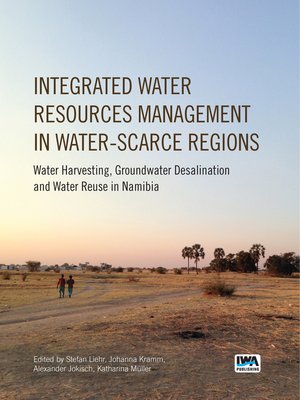Integrated Water Resources Management in Water-scarce Regions
ebook ∣ Water Harvesting, Groundwater Desalination and Water Reuse in Namibia
By Stefan Liehr

Sign up to save your library
With an OverDrive account, you can save your favorite libraries for at-a-glance information about availability. Find out more about OverDrive accounts.
Find this title in Libby, the library reading app by OverDrive.



Search for a digital library with this title
Title found at these libraries:
| Library Name | Distance |
|---|---|
| Loading... |
The book consolidates the transdisciplinary research of the project "CuveWaters: Integrated Water Resources Management in Central Northern Namibia (Cuvelai Basin) in the SADC-Region" funded by the German Federal Ministry for Education and Research (BMBF) and undertaken from 2004 to 2015 in Namibia. In these eleven years it was possible to accomplish all three phases of an ideal-typical transdisciplinary research process, from creating a common research object down to transdisciplinary dissemination. The trans¬disciplinary research approach was designed to tackle the life-world problems of food security, sanitation and access to water in a sustainable way. It aimed at integrating science, technology and society with the common goal of establishing a multi-resource mix for water use to improve the living conditions of people in the project region. This 'multi-resource mix' comprises water from different sources made available through adapted technological solutions which are socially embedded. The technological solutions identified with the Namibian partners were rainwater and floodwater harvesting, groundwater desalination, sanitation and water reuse. Each technological solution is reflected in terms of approach, technology, social aspects, management and governance issues, economic viability and sustainability evaluation.
The book shows how technological innovation must go hand in hand with social innovation regarding knowledge, practices and institutions. A comprehensive report of the design, methodologies and procedures as well as the research findings and conclusions is provided here. The aim of the book is to share with researchers, professionals and practitioners the lessons learned during the project and provide guidance for replication.







